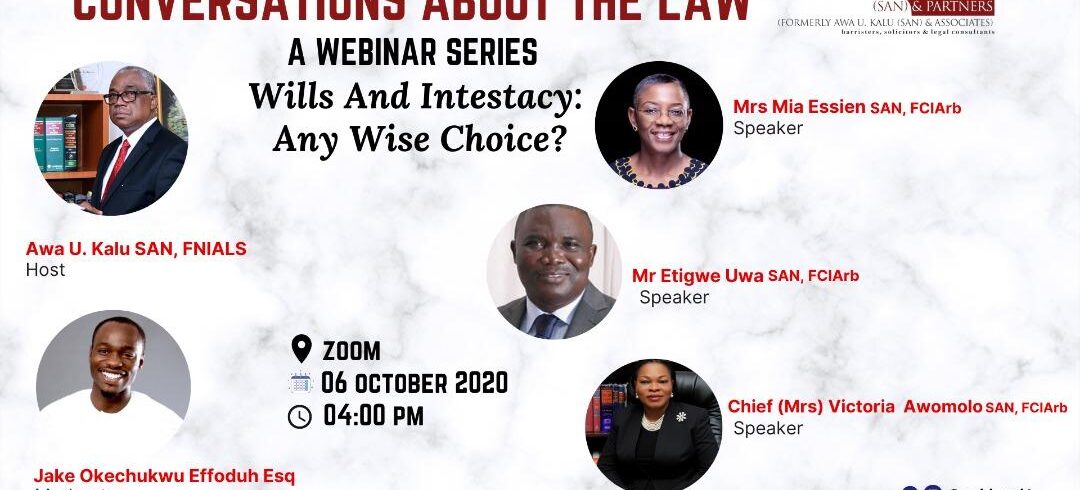Kogi State has, for a very long time, been famous. Its fame is inevitable on account of its being the ‘Confluence State’ i.e. the only state that is home to the merger of the two longest rivers in Nigeria- Rivers Benue and Niger. The confluence is a product of nature. In the past few days, an event which has presented veritable opportunity for lawyers, public affairs analysts, groundnut and tomato sellers and sundry opportunists a highway for information and opinion peddling is as yet unfolding like the now proverbial breaking news. It is also a product of nature. Governorship elections were held in the totality of Kogi State on Saturday, 21st November, 2015. A total of 22 political parties, in accordance with the law of the Constitution, fielded 22 viable candidates for election into the office of Governor. As is usual, election results at any level come in piecemeal and this was the position in Kogi State. As our election laws presently stand, an election is not an event but is a process involving accreditation, voting, counting and the announcement of the result, etc.
The electoral umpire is the Independent National Electoral Commission (INEC). Part of its responsibility, as will soon be seen, includes the collation of results at unit level, the ward, the local government area and, finally, at state level after which a return is made. What the discerning reader has to note at this stage is that once the result at each of these levels has been announced, the undisputed umpire is rendered lame and incapable of cancelling the results as announced. The stipulation of the law at this time is that election results can only be questioned by petition filed at a duly constituted tribunal. If a case is made out, the tribunal can cancel or annul the results of the election or make such order as the circumstances warrant.
What has made Kogi State more famous than its being a ‘Confluence State’ is the death of one of the governorship candidates, i.e. His Excellency Abubakar Audu who, at the time of his unexpected death, had served not only his state but his country in various illustrious capacities. He died just when the final outcome of the election was eagerly awaited. At the approximate time of his death, his political party, the All Progressives Congress (APC) had garnered 240, 867 votes. The closest rival was the Peoples Democratic Party (PDP) who had scored 199, 514 votes but, owing to malpractices which led to some votes being voided, a supplementary election was to be held in 91 outstanding polling units.
The unfortunate demise of one out of the 22 gubernatorial candidates led to the birth of multiple experts who immediately proclaimed constitutional crisis in Kogi State. Several legal pundits immediately spotted a legal and constitutional lacuna which warranted instant calls for the intervention of the Attorney-General of the Federation; an immediate visit to the Supreme Court for an impeccable opinion on the events which, at the time, had not even completely crystallised; and worse still, our street traders in legal wares recommended an emergency convocation of the National Assembly for the purpose of declaring as applicable the only magic wand available- invocation of the doctrine of necessity.
Fortunately, the Independent National Electoral Commission seized the bull by the horns and took the position of announcing soon after the death of His Excellency Abubakar Audu, that the supplementary election would take place on the 5th of December, 2015 and that the APC which had lost its flagbearer in the Kogi State Governorship Election, was at liberty to replace its deceased candidate. In the light of the announcement by INEC, tongues have been wagging at the inevitability of a court action to determine, amongst other things, whether the election ought to be annulled and a fresh one conducted; whether His Excellency Abubakar Audu’s associate (the Deputy-Governorship candidate, James Faleke) could conclude the journey which both of them started and, upon conclusion of the election and the possible event of winning it, choose his deputy governor. In addition, some emergency lawyers recommended that the PDP’s candidate, being the highest vote scorer alive, ought to be declared winner in that, being alive is an electoral feat.
The unfortunate demise of the APC candidate together with the inconclusiveness of the elections has thrown Kogi State into an electoral and constitutional conundrum which has, as already mentioned, preoccupied laymen and theorists alike in the days since Abubakar Audu’s death. At this stage, the layman’s question ought to be ‘Which way Kogi?’
For its part, as already hinted, INEC has, in a notice issued earlier this week, decided to conduct supplementary elections on December 5th, 2015 and allowed the APC to replace the deceased Abubakar Audu with another candidate in order to effectively participate in the process. In this way, it is assumed that the candidate chosen by APC to replace Abubakar Audu will be credited with the votes already counted in his favour in addition to any further votes the new candidate is able to muster come December 5th.
Inevitably, this has led to some confusion amongst those who are ordinarily concerned with the conduct and outcome of electoral proceedings, not least politicians, legislators and legal practitioners, a few of whom have offered their perspective on the applicable law to this situation in light of the unconventional circumstances which contextualise it. It is to these opinions that this writer has chosen to add his voice, paying particular attention to the Electoral Act and the Constitution of the Federal Republic of Nigeria, both of which must be read closely to resolve the intertextual subtleties which animate this present conversation. For clarity, neither the Electoral Act of 2010, as amended, nor the Constitution, which has been amended from time to time to account for the shifting sands of our political and legislative existence- make any specific provisions for an event such as has come to pass in Kogi State. There is nothing in either text which stipulates the precise measures which must be taken and steps which must be followed by INEC or by any other person or body to deal with the passing away of a candidate for the position of Governor in an election before the declaration of the results of that election. The Electoral Act makes provision for the death of a candidate at Section 36 thereof where it provides: “(1) If after the time for the delivery of nomination paper and before commencement of the poll, a nominated candidate dies, the Chief National Electoral Commissioner or the Resident Electoral Commissioner shall, being satisfied of the fact of the death, countermand the poll in which the deceased candidate was to participate and the Commission shall appoint some other convenient date for the election within 14 days.”
This is the entirety of the Electoral Act’s treatment of the incidence of death of a candidate for any electoral office. Further, the Constitution provides for the incidence of the death of a Governor-Elect, that is, a person who has been elected as Governor but has not been sworn in and taken the Oath of Office or, alternatively, dies before being able to assume office. However, the candidate in this case did not die before the commencement of the polls, nor was he duly elected and later failed to assume office for one reason or the other. Rather, Abubakar Audu passed into blessed memory during the continuity of the polls which had already commenced but were yet to conclude, thus bequeathing our electoral jurisprudence yet another quagmire to add to the numerous precedents which now form part of the body of law which guides electoral practice in Nigeria.
There is no other way to approach this weighty matter except to consider the looming questions individually. Primarily, we must ask ourselves what is the proper procedure to follow in the event of the death of a candidate whilst elections are ongoing but before final results are announced. Then we must also ask who the proper person is to replace a candidate who dies in this untimely manner. Further, there is the question of whether the elections conducted up to the point of the passing away of the candidate ought to be cancelled and conducted afresh or whether supplementary elections as have been directed by INEC suffice in the circumstances. We are also bound to question whether the aforementioned Section 36 of the Electoral Act, 2010 along with Section 33 of the same statute- which provides grounds for the change or substitution of a candidate by a political party- would still apply in the special case of Abubakar Audu. In considering this most immediate line of questioning, regarding the change of a candidate by a political party, we must also apply our reasoning to the question of primaries and whether the affected party ought to conduct fresh primaries to select a candidate as a substitute in a case such as has befallen the APC in Kogi State. Again, it would be necessary to dissect the propriety of a substitute candidate in view of INEC’s decision to retain the votes already garnered by the APC under the candidature of the deceased Abubakar Audu.
We must, at this juncture remind ourselves of the fact that a run for Governor under our Constitution, requires an executive team ticket which means that any candidate for that position must adopt a running mate who will become a candidate for the post of Deputy-Governor. In that connection, what is the legal status of Abubakar Audu’s running mate who was the candidate for the post of Deputy-Governor of Kogi State? In concluding our inquiry, we must ask whether INEC ought in fact to have declared the election results in Kogi State inconclusive having regard to prevailing circumstances. Our streetwise lawyers who probably have more facts than INEC have pointed out that the 91 polling units in respect of which supplementary elections will be held have approximately 49,000 registered voters. Of this number of voters, the pundits also contend that only 25,000 of those registered voters have Permanent Voters Cards (PVC). In their calculation, no PVC, no accreditation. Late Abubakar Audu had been projected and announced to have been leading his closest rival by a margin of some 41,000 votes. The impression that certain discussants have created is that INEC has provided a perfect answer to a perfect puzzle.
This writer is afraid that this may not be so. Consider this scenario, what is being contested is the office of Governor of Kogi State. To emerge as winner of a Governorship election, our electoral laws stipulate that a winner must first score the majority of lawful votes cast at the election. In addition to scoring the majority of lawful votes cast, such a winner must score 25% of the votes cast in at least two-thirds of the local government areas in the state concerned. Take into account the fact that elections are only outstanding in 91 units and those are the units that any fresh candidate nominated by the APC will contest in Kogi State. What this means is that such a new candidate cannot, in reality, be said to be capable of winning either a majority of the lawful votes cast or 25% of the votes cast in two thirds of the local government areas of Kogi State.
However, a leeway exists, and it is to apply the legal principle settled in the Supreme Court decision in Amaechi v INEC & Ors (2008) 5 NWLR (Pt 1080) 277. That principle crystallises in the point that, in this country, it is a political party and not its candidate that wins elections. Applying that principle in the context of this case would mean that all the votes cast for APC with Abubakar Audu as candidate (i.e. 240, 867 votes) would be appropriated by the said APC and be credited to a fresh candidate who, by the doctrine of subrogation, would take the place of the deceased. That sounds like justice. Leaning on the call to cancel the entire process because of the death of one out of twenty-two candidates, in my view, would sound unjust not only in law but in common sense. Imagine that 22 candidates were partaking in examinations on a particular subject and, in the course of the examination, one of such candidates slumps and dies with ten minutes left of the examination, what would be expected is not a cancellation of the examination and asking all the candidates to go back for revision. The appropriate step in such circumstances would be to allow any results arising from the examination to stand. That is equity and that is fairness.
We cannot run away from the novelty of the Kogi situation and so it is only fair to expect that litigation will ensue. Our already over -aboured and over-burdened courts especially in political matters will again be brought into the fray. As usual, there is no draw in a law court. This is to say that a valid pronouncement will be made at the end of the day and our jurisprudence would be the richer for it so that if at a date in future such an event recurs, there will be no attendant brouhaha. There will be no invocation of the doctrine of necessity. And there will be no wise market men or women masquerading as legal pundits.
It is pertinent to note that, within the ambit of the Constitution and the Electoral Act, an election contemplates three stages: the pre-election processes, the election itself and post-election procedures. It must also be noted that, in the immediate scenario, we are not faced with any questions of pre-election processes nor have we arrived at an examination of any post-election procedures. Owing to the fact that the election for Governor of Kogi State was declared inconclusive, the queer permutations generated by the passing away of Abubakar Audu must be viewed as arising from the election itself.
It has been established by judicial precedent that no candidate may vie for electoral office except he or she has been nominated by a political party. This reinforces the statutory position and brooks no argument. It follows then, that responsibility for selection of a candidate for any electoral office lies squarely with the political party to which such a candidate is affiliated. Except where the candidate has already been elected into office and, therefore, acquired the rights of that office as provided for by the Constitution, the candidate remains beholden to the political party for support of any effort to campaign, canvass for and win votes from the electorate. The proper procedure to follow in the event of the death of a candidate should, thus, be a joint undertaking by INEC, as the umpire of the electoral process, and the political party as statutory sponsor of the candidate.
INEC is duly empowered at Section 15 of the Third Schedule to the Constitution to “(a)organise, undertake and supervise all elections to the office of the President and Vice-President, the Governor and Deputy-Governor of a State…”. Further, the same section provides that INEC shall have the power to “(c)monitor the organisation and operation of the political parties, including their finances” as well as to “(f)monitor political campaigns and provide rules and regulations which shall govern the political parties”. From the foregoing, it is safe to conclude that INEC has been granted wide-ranging constitutional powers with respect to electoral procedure which is buttressed by the Electoral Act. The same Act grants exclusive authority to change candidates to the political party as contemplated by Section 33 of the Act. That section states unequivocally that “a political party shall not be allowed to change or substitute its candidate whose name has been submitted pursuant to section 31of this Act, except in the case of death or withdrawal by the candidate”. The framework of the Electoral Act leans to the suggestion that change or substitution contemplated in the foregoing sections (i.e. sections 33 and 36 of the Electoral Act) are pre-election concerns and this is why litigation appears to be probable. Litigation is unavoidable because a competent court aided by the industry of counsel will determine the consequences of death while elections are ongoing.
We are willing to venture the view that what seems most likely to happen is that the court will uphold the right of James Faleke as the associate of the late Abubakar Audu to inherit the mantle and continue the race. The closest situation that can be found in our law reports is the one that played out in PDP & Anor v INEC & Ors (1999) 11 NWLR (Pt 626) 200. In that case, Alhaji Atiku Abubakar who had won the election into the office of Governor of Adamawa State chose to abandon his mandate in favour of becoming a Vice-Presidential candidate. The question was whether a fresh election ought to be conducted or whether to allow the running mate to take up the mantle of Governorship. The Supreme Court held that the Deputy Governorship candidate who ran on the same ticket ought to be allowed to be sworn in as Governor. The only difference in the circumstances of this case is that the election had not at the time of Abubakar Audu’s demise been concluded. The maxim of equity which may be applied in this case is that equity regards as done that which ought to be done. James Faleke was on the cusp of victory with Abubakar Audu. He cannot, in our view, be blown away by an ill wind.
Having said that, it may be recommended that it is too late in the day (the election having nearly been concluded) to ask the APC to provide a replacement for Abubakar Audu. If any replacement is needed, it should be for an associate to James Faleke. Since we have submitted that a replacement is unnecessary, it is the inescapable corollary to also submit that primaries cannot be held while elections are ongoing owing to the contemporaneous inevitability of conceding that primaries concern pre-election processes.
In conclusion, while we must be quick to point out that the event arising from the gubernatorial elections in Kogi State has presented a novel situation, that novelty is not sufficient to warrant the invocation of a legal ‘state of emergency’ and the doctrine of necessity appears far-fetched and inapplicable. Neither the Electoral Act as a statute nor the Constitution can conjure an answer to everything that may occur in the life of a nation. In other climes, judges have been left ‘to iron out the creases’ (apologies to the late Lord Denning). Our judges are politically alive having regard to the number of political cases that come to our courts. Aderemi JSC (as he then was) noted in Amaechi v INEC (supra) that “I go further to say that it is now gradually becoming a cardinal feature of judicial impartiality in this country that judges serving on the bench should be and indeed are generally political eunuchs. But sight must never be lost of the fact that Judges do decide political matters daily. They are human beings like the rest of the members of our larger society”. Let our judges rise to the challenge and show that the storm is only in a teacup.
Awa U. Kalu SAN FNIALS
26th November, 2015




